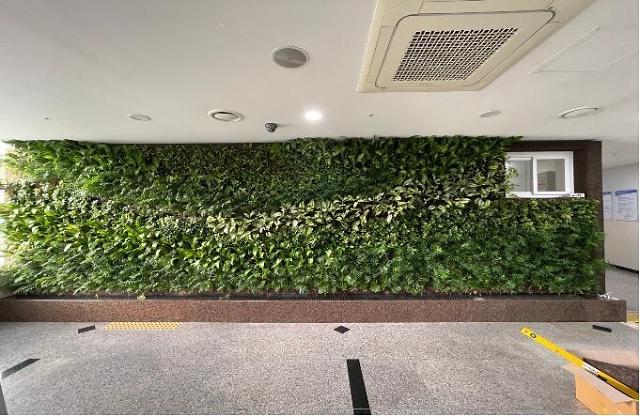
[Courtesy of Busan City]
Using internet of things (IoT) technology, smart gardens control air quality, wind speed, and water distribution to plants. The smart garden project has gained momentum in South Korea to help people reduce their negative emotions such as stress and anxiety. Government data showed that the number of smart gardens skyrocketed to 1,800 in 2022 from 336 in 2021. Data cited by Busan showed that smart gardens can significantly reduce anxiety and stress. Fatigue and depression can be alleviated by more than 50 percent.
Busan said in a statement that about 830 million won ($67,219) will be injected to create smart gardens in 23 multipurpose centers. After selecting smart garden operators, the city will build smart gardens in various forms including wall-type and cube-type depending on the shape of the buildings. "We will build 20 smart gardens every year by 2025 to create Busan into an eco-friendly city where people want to live in," Busan's environment policy bureau head Lee Keun-hee said in a statement on January 13.
Various studies have been carried out to treat South Koreans exhausted by stressful urban life. A study conducted by the state-run National Institute of Forest Science (NiFoS) showed that experiencing a virtual forest was found to be also effective in reducing depression. Those who were exposed to digital forest content for more than 10 minutes showed more consistent psychological effects.
Copyright ⓒ Aju Press All rights reserved.



